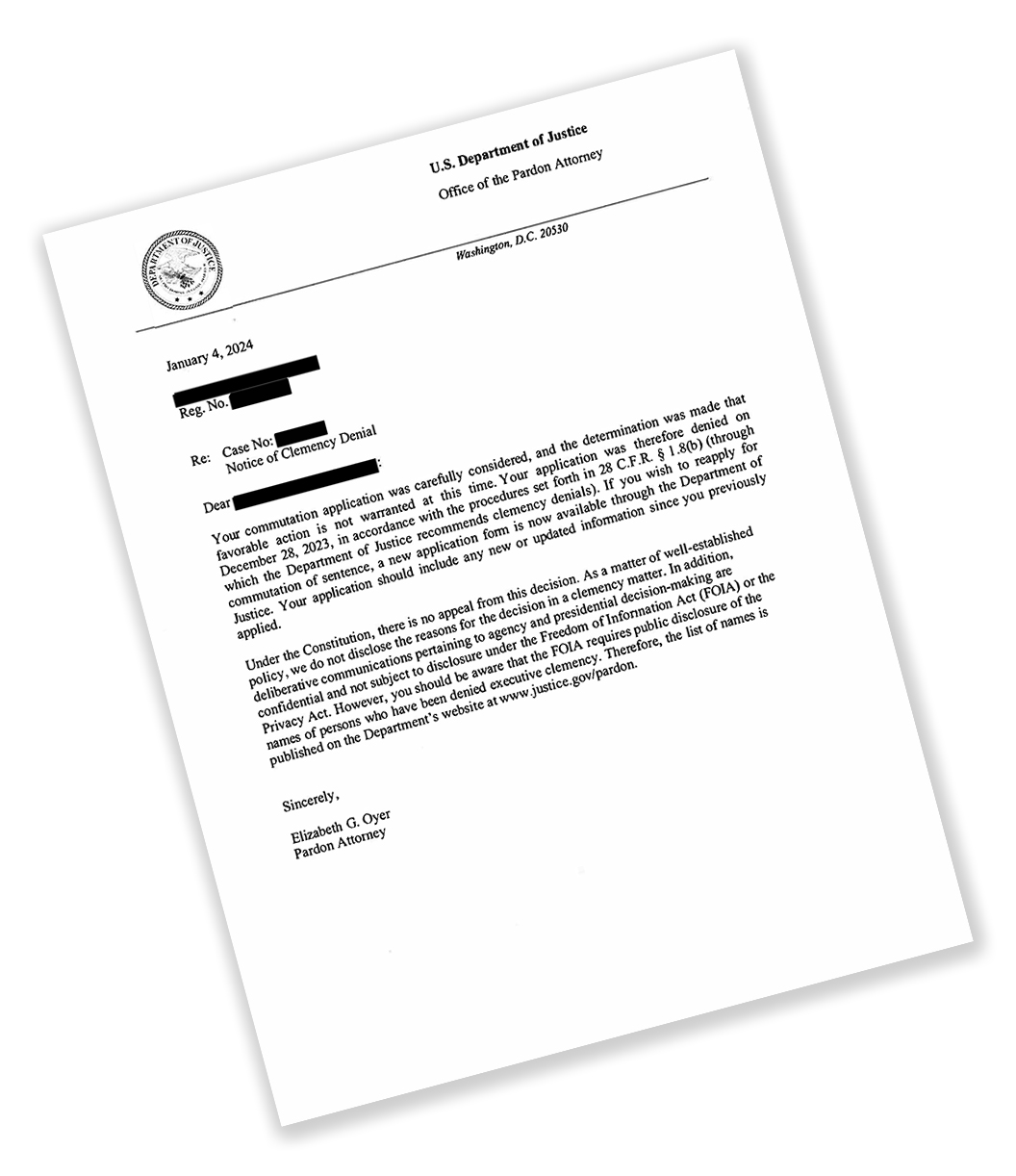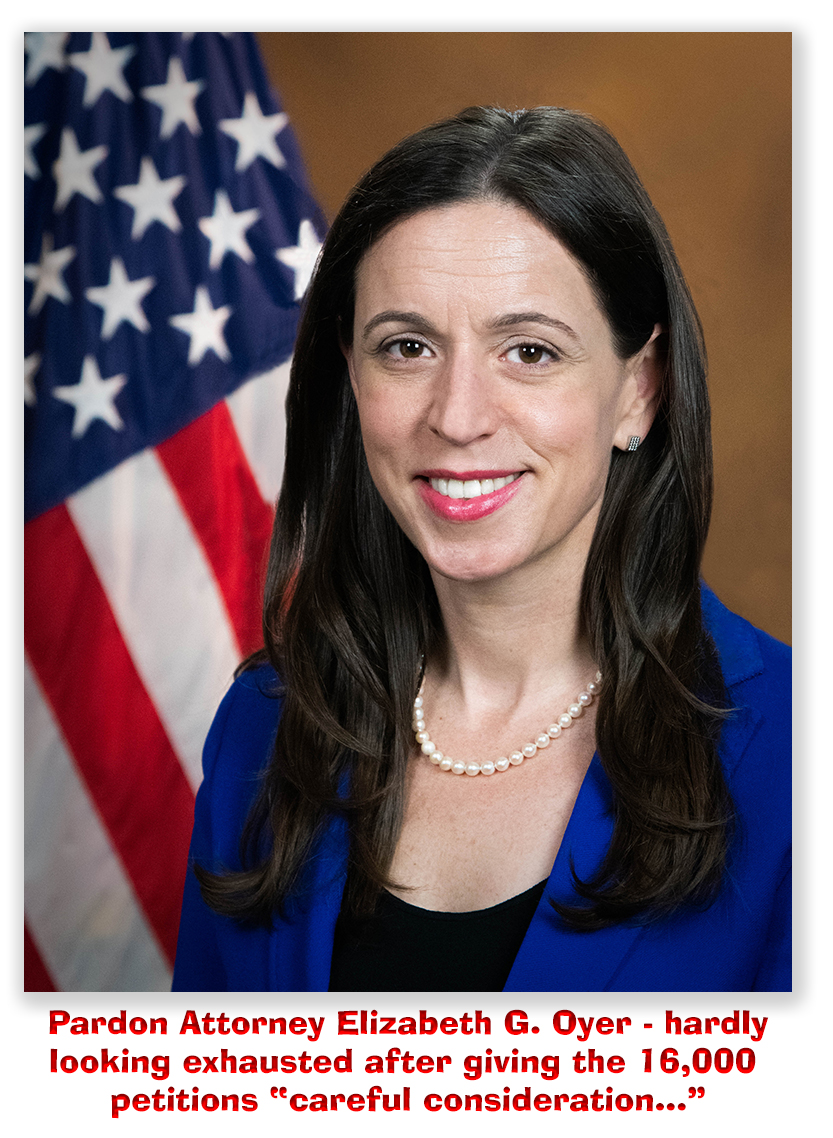We post news and comment on federal criminal justice issues, focused primarily on trial and post-conviction matters, legislative initiatives, and sentencing issues.

BIDEN’S DISAPPEARING SUPPORT FOR CRIMINAL JUSTICE REFORM
The emails are unrelenting. When will the Second Step Act pass? What is Congress doing for people with 18 USC 924(c) convictions? Is it true they’re bringing back CARES Act home confinement? And the old favorite: How about the 65% law?
 My answers have not changed: Never. Nothing. No. And ‘there’s no 65% law.’
My answers have not changed: Never. Nothing. No. And ‘there’s no 65% law.’
Back when he was a candidate in 2020, President Biden staked out big, bold stances on criminal justice reform. We imagined what The Hill last week called “a ground-up reworking of the carceral state,” with all First Step Act changes in gun and drug crime law becoming retroactive, substantial marijuana decriminalization, passage of the EQUAL Act… As The Hill put it, “Biden’s vows of far-reaching reform were so numerous that the Prison Policy Initiative had to limit itself to listing only his five biggest pledges in a post-election recap. The Marshall Project called Biden’s criminal justice platform “the most progressive … of any major party candidate in generations.”
Four years later, Biden’s criminal justice reform efforts have brought forth a mouse. His grand 2020 pledges have disappeared from his website, and “a shroud of silence has fallen over Democratic offices when queried about the issue,” as BNN described it last week.
Last week, the Dept of Justice reported that Federal arrests during fiscal year 2022 were up 24% from the number in FY 2021. Immigration offenses accounted for 24% of those arrests, supervised release violations were almost as numerous at 23%, and drug trafficking offenses accounted for 21%.
It is significant that criminal justice reform people – who usually have nothing good to say about President Trump – are comparing Biden’s reform record unfavorably to Trump’s, whose First Step Act “has shown positive results, with those released under it being less likely to reoffend, demonstrating that federal criminal justice reform can be effective,” BNN said.
So what happened? The Hill says Biden’s abandonment of meaningful criminal justice reform
has been driven in large part by a wildly successful Republican messaging campaign. GOP politicians, aided by a friendly network of right-wing media outlets, have spent much of their time since 2020 selling American voters on the fiction that crime is surging. They’ve also made sure those Americans know to lay the blame on so-called “soft on crime” Democrats, whom they universally portray as eager to release dangerous felons onto the street. That messaging helped Republicans rack up wins that cost Democrats control of the House.
“The states are all still passing criminal justice reforms or fighting for them,” Crime and Justice News quoted Lorenzo Jones of the Katal Center for Equity, Health and Justice as saying. “The people doing that are all local, but those local people have been largely shut out of the national spotlight.” Burns believes that Republican presidential front-runner Donald Trump can run to Biden’s left on criminal justice reform. He urges Biden to bring together “neglected criminal justice reform groups and do[] some much-needed listening.”
 Terrence Coffie, an adjunct assistant professor at New York University (and a man whose first academic achievement was getting his GED in 1993 while serving a drug trafficking sentence), said Biden could turn around his abandonment of criminal justice reform by leading an effort to repeal the Violent Crime Control and Law Enforcement Act of 1994, an “outdated and draconian piece of legislation…” that has “perpetuat[ed] harm rather than fostering justice.” Writing in Forbes last week, Walter Pavlo said Coffie “believes it is a critical step towards rectifying historical injustices and forging a more equitable path forward for marginalized communities.”
Terrence Coffie, an adjunct assistant professor at New York University (and a man whose first academic achievement was getting his GED in 1993 while serving a drug trafficking sentence), said Biden could turn around his abandonment of criminal justice reform by leading an effort to repeal the Violent Crime Control and Law Enforcement Act of 1994, an “outdated and draconian piece of legislation…” that has “perpetuat[ed] harm rather than fostering justice.” Writing in Forbes last week, Walter Pavlo said Coffie “believes it is a critical step towards rectifying historical injustices and forging a more equitable path forward for marginalized communities.”
Just don’t expect any steps along that “equitable path” to be taken in 2024, with Democrats frightened of criminal justice reform and Republicans decrying a violent crime wave sweeping America.
The Hill, What happened to Biden’s promises on criminal justice reform? (January 17, 2024)
BNN, Biden’s Criminal Justice Reform: Promises Unfulfilled Amidst Political Play (January 17, 2024)
DOJ Office of Justice Programs, Federal Arrests Increase 24% After Falling to a 20-Year Low (January 18, 2024)
Crime and Justice News, Have Biden, Other Dems Caved On Criminal Justice Reform? (January 19, 2024)
Forbes, Biden’s Mixed Messaging On Criminal Justice Reform (January 15, 2024)
– Thomas L. Root
































